Results
-
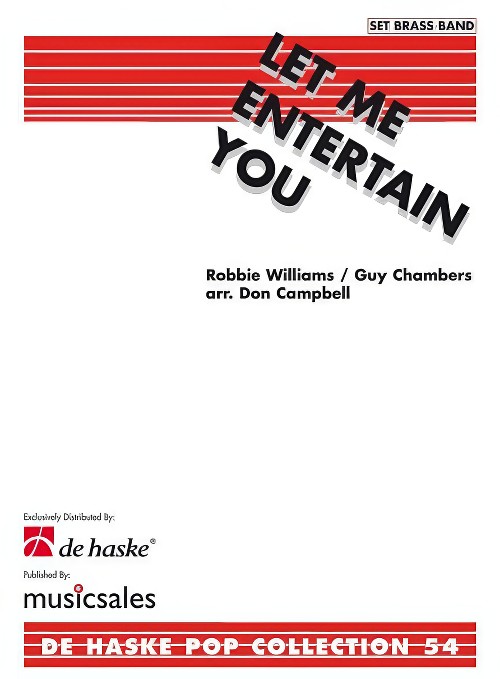 £84.99
£84.99Let Me Entertain You (Brass Band - Score and Parts) - Chambers & Williams - Campbell, Don
This is a must-play item for any light concert programme. Robbie Williams is currently considered to be the king of pop, with his massive hit Angels being voted the number one song in many charts of all time greatest pop songs. He appeals to an extremely diverse audience ensuring every person at your concert will leave singing the songs from this superb work. Duration: 9.15
Estimated dispatch 7-14 working days
-
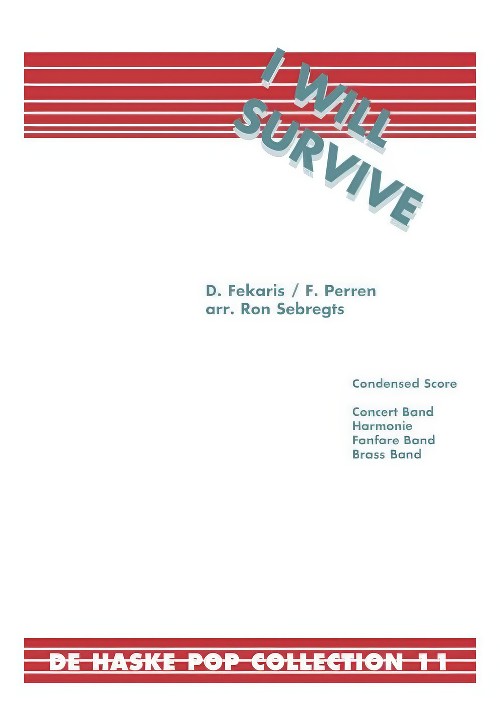 £54.99
£54.99I Will Survive (Brass Band - Score and Parts) - Fekaris & Perren - Sebregts, Ron
This classic disco hit was released by Gloria Gaynor in 1978. Following massive airplay it reached number one in pop charts around the world and in 1980 received a Grammy for Best Disco Recording. Since then it has appeared in many films and television programs and has been adopted by many causes such as HIV/AIDS awareness and the campaign for women's rights. It is also the 'stadium anthem' for the Dutch football team Feyenoord. Ensure your audience leaves any concert in an upbeat mood with this disco masterpiece.Duration: 3:30
Estimated dispatch 7-14 working days
-
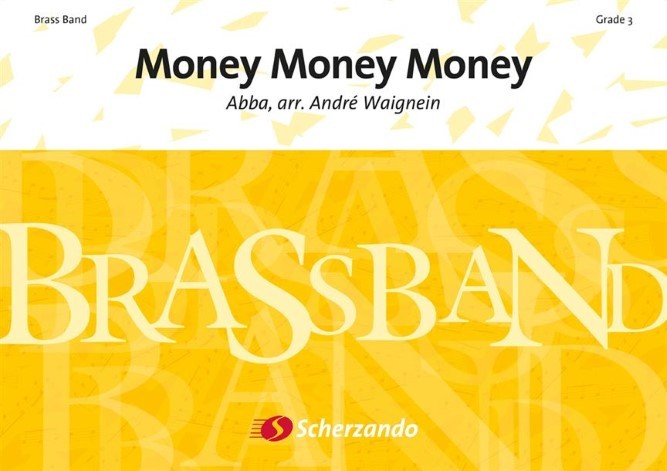 £54.99
£54.99Money, Money, Money (Brass Band - Score and Parts) - Andersson & Ulvaeus - Waignein, Andre
Money, Money, Money was a number one hit for the pop writing duo of Benny Andersson and Bjorn Ulvaeus. The hits of ABBA first entered the charts in the seventies and remain as popular today as they were then.Duration: 2:45
Estimated dispatch 7-14 working days
-
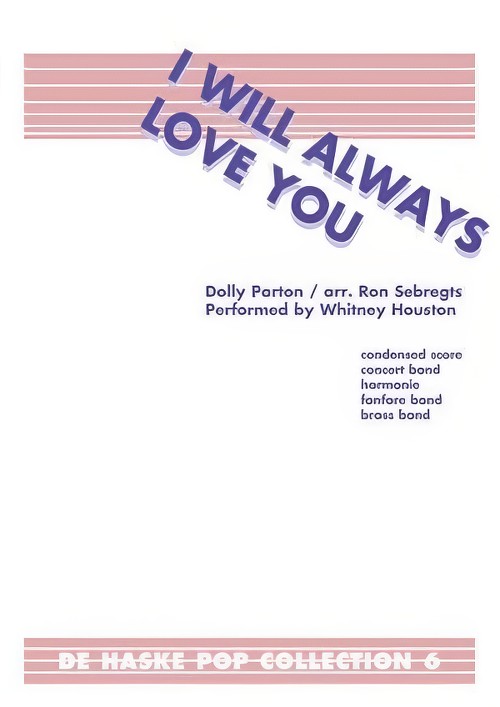 £54.99
£54.99I Will Always Love You (Brass Band - Score and Parts) - Parton, Dolly - Sebregts, Ron
The title song to the 1992 film The Bodyguard, I Will Always Love You, written by Dolly Parton and sung by Whitney Houston spent over 10 weeks at number one in the UK charts. The beautiful ballad has been sensitively arrangement for brass band and is sure to be a big hit with both musicians and audiences.Duration: 3:30
Estimated dispatch 7-14 working days
-
Anyone Who Had A Heart - Burt Bacharach and Hal David - Len Jenkins
"Anyone Who Had A Heart" is a song written by Burt Bacharach (music) and Hal David (lyrics) originally for Dionne Warwick in 1963. However, in the UK, Ireland and New Zealand, the cover version by Cilla Black was, and is still, the best loved. Championed by her friends The Beatles, she began her career as a singer in 1963, and her singles "Anyone Who Had A Heart" and "You're My World" both reached number one in the UK in 1964. From the first line, the song has a certain frisson: "Anyone who ever loved, could look at me, and know that I love you." Sadly, Cilla passed away on 1 August 2015 so this is our tribute to a well-loved lady and singer. Our objective has been to interpret the style of the original performance by Cilla, and whilst the time signatures may not be familiar, experience has shown that these are easier to read and play than the alternative using triplets.
-
Runaway - Max Crook & Del Shannon - Len Jenkins
"Runaway" was made famous by Del Shannon in 1961 when it was released in the February of that year and quickly became an international hit. At its height it was said to be selling at the rate of 80,000 singles per day and in the June made number one in the UK. It was written with Max Crook who had invented his own clavioline-based electric keyboard called a Musitron which features in the original recording. The song was originally recorded in A minor, but the producer sped up the finished recording to just below B-flat minor. The iconic synthesiser sound in this arrangement is reproduced as a solo on Soprano cornet, and should be within the capabilities of most players provided attention is paid to the breathing regime.
-
£40.00
Wake Me Up Before You Go Go - Michael, G - Harper, P
The first number one hit by Wham! in 1984 this is an energetic pop piece that took all the best elements of Fifties and Sixties records and combined them with a more uptempo and youthful attitude. A huge hit that is still popular today. Listen here - Courtesy of Cory Band
In Stock: Estimated dispatch 1-3 working days
-
£26.50
Slaidburn - Rimmer, W
Composed by William Rimmer for the Slaidburn Band. This is another Rimmer marchthat has been played by most bands. Continuesto be a number one seller year in andyear out. Freshly engraved andprinted and now with a full conductor'sscore. As with Ravenswood this marchhas been played and played at Whit Fridayas a road march.4th section +
In Stock: Estimated dispatch 1-3 working days
-
£33.00
Ticket to Ride - Lennon & McCartney - Barry, D
The Beatles 7th consecutive number one hit in the UK is still as popular today as it was in 1965.
In Stock: Estimated dispatch 1-3 working days
-
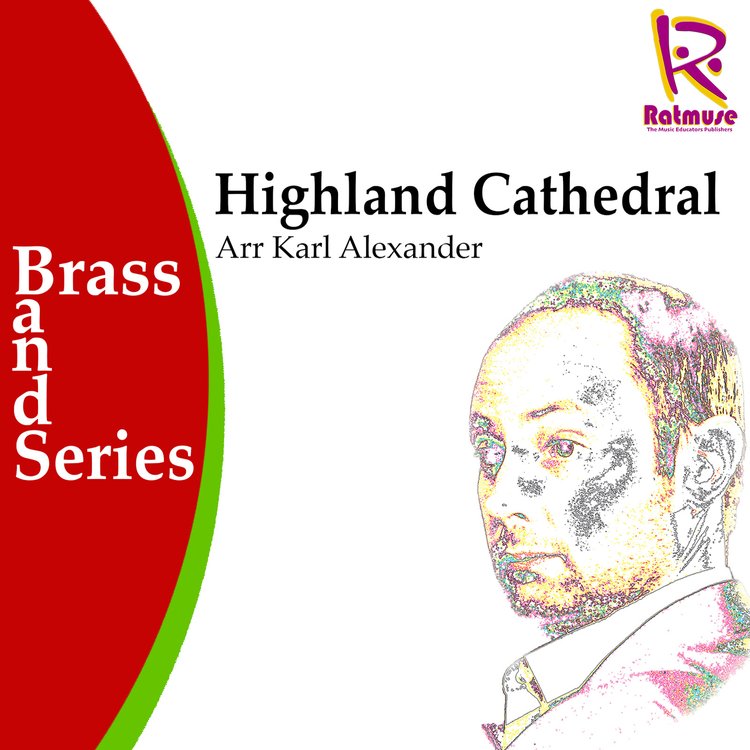 £30.00
£30.00Highland Cathedral - Brass Band - Karl Alexander
ARRANGER: Karl AlexanderThe number one Scottish hymn has been set for brass band by Karl Alexander. Highland Cathedral with quite opening and regal fanfares will have your band on their feet wanting more. And for the true Scottish spirit this arrangement comes with optional bagpipe parts for a true Scottish feeling.CLICK HERE TO HEAR THIS PIECE - Highland Cathedral Arr: Karl Alexander
In Stock: Estimated dispatch 3-5 working days

